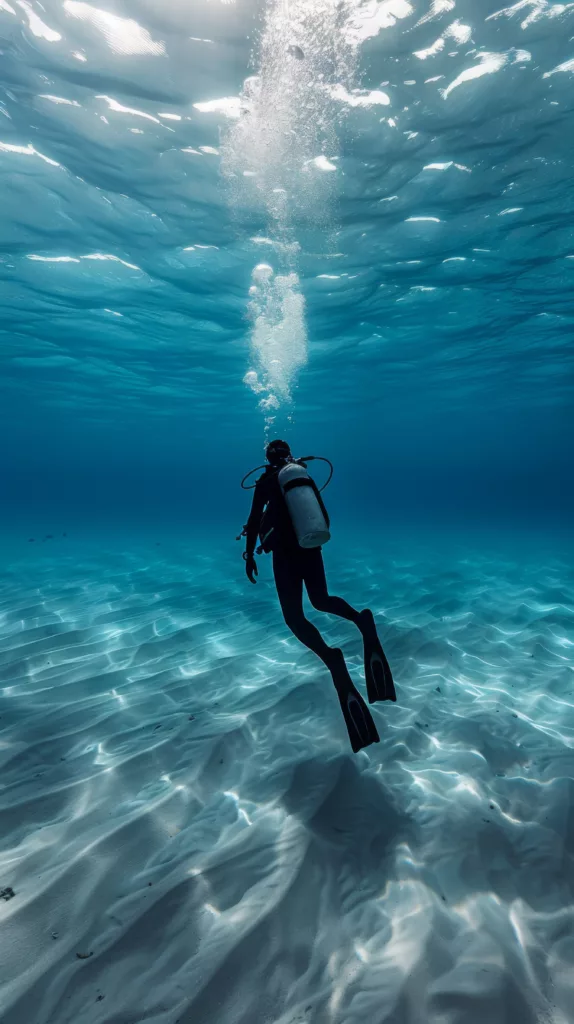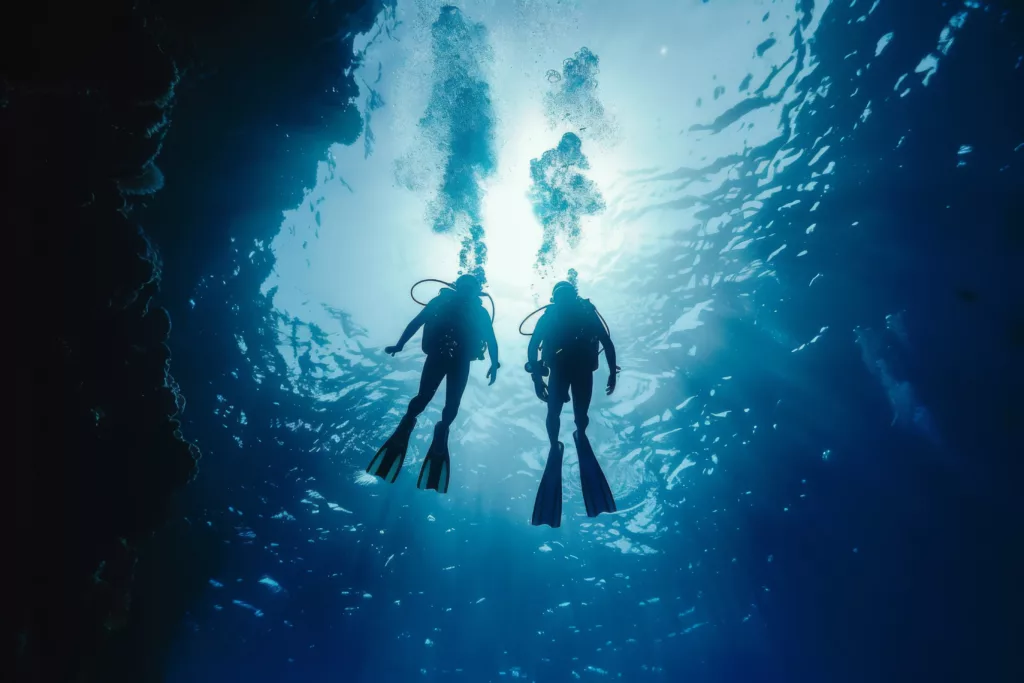Diving in the enchanting waters of Bali is an experience like no other. The island’s underwater adventures, stunning dive sites, and breathtaking marine life make it a must-visit destination for diving enthusiasts. Whether you’re exploring the depths of the USS Liberty Shipwreck or witnessing the vibrant coral reefs at Nusa Penida, every dive in Bali is a gateway to a mesmerizing underwater world. However, the exhilaration of scuba diving doesn’t end when you resurface. Post-dive care is crucial to ensuring your body adjusts safely and you can fully enjoy your diving escapades. Here, we delve into the five essential do’s and don’ts to ensure a safe and fun post-dive experience.
Hydrate, Hydrate, Hydrate

One of the most critical aspects of post-dive care is staying hydrated. Scuba diving can often lead to dehydration due to factors like the colder temperature, breathing dry compressed air, and physical exertion underwater. Replenishing your body with plenty of water after each dive helps in flushing out the nitrogen absorbed during the dive, reducing the risk of decompression sickness. Remember, caffeine and alcohol can dehydrate you further, so it’s best to opt for water or sports drinks rich in electrolytes.
Avoid Flying Immediately After Diving
Planning your travel itinerary is an essential part of diving in Bali. Avoid flying within 18 to 24 hours after your last dive. This period allows the nitrogen absorbed in your tissues to safely off-gas before you’re exposed to the lower cabin pressures of an airplane. Flying too soon after diving raises the risk of decompression sickness, which can lead to severe health complications. Spend this time enjoying the cultural sights and beautiful landscapes of Bali, ensuring you’re well-rested and ready for your flight.
Rest and Recovery
Physical exertion is part and parcel of diving, and your body needs adequate rest to recover post-dive. Avoid strenuous activities for at least 24 hours, focusing instead on gentle activities like yoga or meditation. This downtime helps your body adjust, reduces fatigue, and minimizes the risk of muscle strains. A restful sleep is also imperative, as it aids in the overall recovery process and ensures you’re refreshed for your next diving adventure.
Monitor Your Health

After a dive, it’s crucial to keep an eye on how you’re feeling. Be vigilant for any signs of decompression sickness, which may include joint pain, dizziness, skin rashes, or extreme fatigue. If you notice anything unusual, seek medical attention immediately. It’s always better to err on the side of caution, as prompt treatment can mitigate serious health issues. Additionally, informing your dive buddy or dive leader about any concerns ensures you’re not handling potential problems alone.
Protect Your Ears and Sinuses
Divers often face ear and sinus issues due to the changes in pressure underwater. Post-dive, it’s important to treat your ears and sinuses with care. Avoid activities that can further stress these areas, such as deep cleaning with cotton swabs or exposing them to loud noises. If you experience any discomfort, using decongestant sprays or gentle ear care solutions can alleviate symptoms. Always consult a healthcare professional if problems persist, ensuring that you maintain optimal ear and sinus health for future dives.
Optimizing Your Underwater Adventures

Post-dive care is as crucial as the dive itself, ensuring a safe and enjoyable experience for everyone. By focusing on hydration, timing your flights, allowing your body to rest, monitoring your health, and taking care of your ears and sinuses, you can mitigate risks and enhance your overall diving journey. Bali’s dive sites are some of the world’s most stunning underwater realms; prioritizing your well-being ensures you can continue to explore them without hindrance. So dive deep, take care, and let every underwater adventure be as thrilling and safe as the last.


I completely agree with the importance of post-dive care. As a seasoned diver, I’ve learned that taking care of my body after a dive is crucial to ensuring a safe and enjoyable experience.
Thank you for sharing your experiences, Elaine! We’re glad to hear that you prioritize post-dive care. At Pebble and Fins, we believe that it’s not just about the dive itself but also about ensuring our guests’ safety and well-being after their underwater adventure. If you have any questions or concerns about our resort’s facilities or services, please don’t hesitate to contact us at [email protected] or +62 857 3891 8262. We’re always here to help. By the way, have you tried our dedicated training facilities for local staff and community programs? They’re a great way to make a positive impact on the local level while enjoying your diving experience in Bali.
This article has given me a lot to think about. I’ve never really thought about the importance of hydrating after a dive, but it makes total sense. Thanks for sharing this valuable information!
Thank you so much for sharing your thoughts, Kavin! We’re thrilled to hear that our article has given you a lot to think about. Yes, hydration is indeed a crucial aspect of post-dive care, and we’re glad we could help spread the word. If you have any more questions or concerns, please don’t hesitate to reach out to us at [email protected] or +62 857 3891 8262. We’d be more than happy to assist you. Looking forward to hearing about your next diving adventure in Bali!
I’ve always been meticulous about my post-dive care, and this article has reinforced the importance of it. Great reminder for all divers!
Thank you for sharing, Natalie! We’re thrilled to hear that our article resonated with your experiences as a diver. At Pebble and Fins, we prioritize not only providing an unforgettable diving experience but also ensuring the well-being of our guests. Our resort is committed to making a positive impact on the local community through education and job opportunities. If you have any questions or would like to learn more about our initiatives, please feel free to contact us at [email protected] or +62 857 3891 8262. We look forward to having you dive with us again soon!